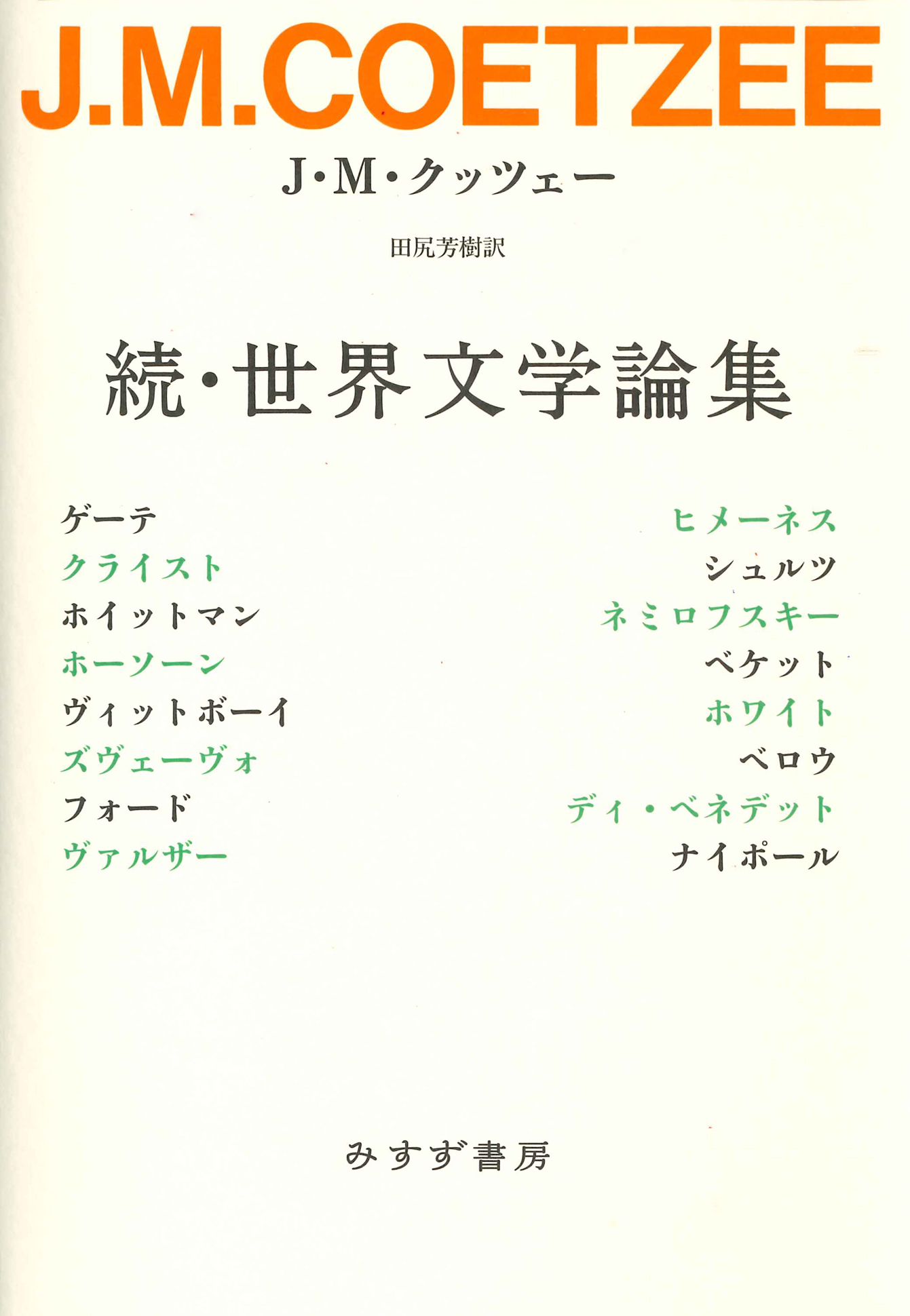
Title
Heinrich von Kleist (Literature over the Political)
Size
364 pages, 127 x 188mm, hardcover
Language
Japanese
Released
March 19, 2020
ISBN
978-4-900997-78-3
Published by
INSCRIPT
Book Info
See Book Availability at Library
Japanese Page
Heinrich von Kleist (1777-1811) was one of the most prominent German poets around 1800. This book discusses the essential issues that appear in his works, i.e., each chapter focuses on the literary expression of ‘the political’ from various perspectives.
Kleist’s name cannot be separated from politics. While born into a family of Prussian officers, he retired early from the service. Instead, having had literary practice in the era from the French Revolution to the imperial regime under Napoleon, he wrote most of his drama and prose at the time when the German constitution was on the verge of collapsing and when drastic reforms were demanded. His works thematized elements such as ‘law or politics’ (“Prinz Friedrich von Homburg”), ‘colonial liberation and emancipation of the slaves’ (“Die Verlobung in St. Domingo”), ‘exclusionism and active deterritorialization of the “Volk”’ (“Die Herrmannsschlacht”), ‘mobilization of the multitude’ (“Das Erdbeben in Chili”) or ‘love and war’ (“Penthesilea”).
The authors of this book pay attention to the way Kleist sublimes the political elements into the essential components of his literary works, instead of using them merely as diverging topics or quirky, romantic scenic backgrounds. Indeed, his works have - partly because of his own biases - at times suffered from political misappropriation. It will be of little significance today to see him as ‘a political poet’ with a specific partisanship. He rather should be regarded as ‘the poet of the political’. Coping with the unsettled self-evidence of ‘the political’ in its traditional sense, he somewhat attempted to retrace it to its basic concept, while he continued observing its modern transformation carefully from a distant position. The oscillation of the viewpoint between the basic form of the political and its modern divergent phenomena enabled him all the more to give multilayered literary expressions to the concept.
As with the political sphere, in the realm of poetry and art, destruction and of construction are inseparably connected with each other. Motives, such as dream, self-oblivion, somnambulism, or other unconscious deeds, as well as rage outbursts, interruptions or sudden conversions of dialogues, which have been considered Kleist’s aesthetic or narrative components, also bear the ambiguity of destructiveness and constructiveness in a positive manner. Here, a particularly important characteristic is expressed in the contemporary context, where both the classical agreement on politics and common understanding in literary norms are vastly lost and where every struggle to shape another political and literary framework is on various trials. Actually, Kleist gives shape to such political actors that appeared around 1800 as seemingly egocentric insurgents, partisans filled with hostility. Yet, they are neither represented as evil deviations nor completely agreeable, but rather in search of their own account. He is by no means a poet who is fascinated by the political or even by the war. On the contrary, he undertook to stare at things one could hardly stand watching. The book attempts to take a similar approach.
(Written by OMIYA Kanichiro, Professor, Graduate School of Humanities and Sociology / 2021)



 Find a book
Find a book



